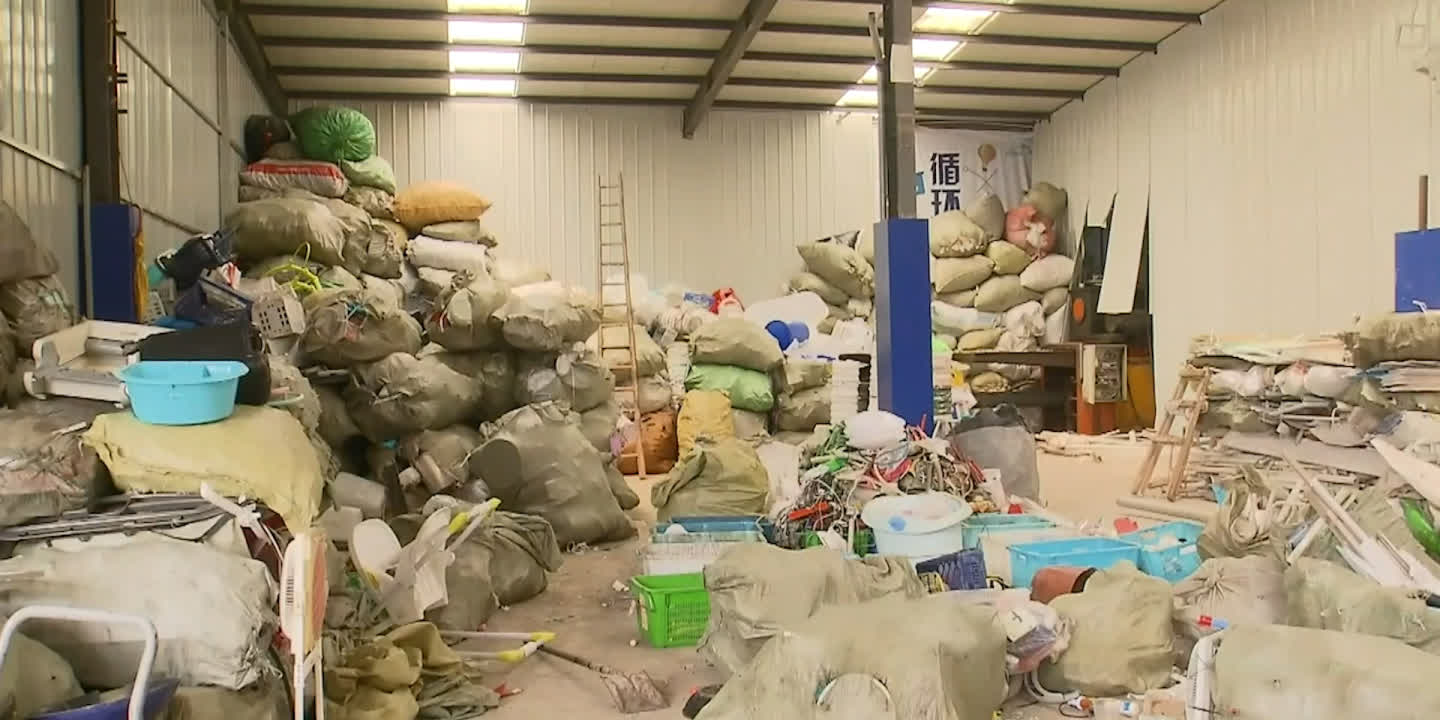這裡是虹橋綜合交通樞紐,連繫了空運和各種陸上交通公具。我到了上海,因為想親身了解這裡剛剛實行的強制垃圾分類條例。我非常支持家居垃圾分類,在家裡,我會做好基本的廢物處理,膠類、紙製品分開收集,然後就是一般垃圾。不過有時候我都會好奇,收集了的廢物可以怎樣處理?上海的2,300萬人口,最近就可能比我更關心這個題目。7月起,上海市率先將保護環境的戰線推進一大步,新的規例看起來非常簡單,把廢物分成四大類分別處理就好了。乾的、濕的、可回收的,最後就是有害的,不過實行起來就大有學問了。原來雞骨、豬骨屬於不同分類,手提電腦電池跟手機電池不能放在一起。處理每一件廢物之前都要想清楚,由電燈泡、植物的根莖、金屬製品到藥物。華盛頓郵報就跟中國的讀者開了一個玩笑,它發了一個問題:粟米芯跟粟米粒要分開棄置嗎?政策的背後當然是民生,一夜之間,幾百萬人要改變生活習慣,而且條例的要求很高,大家都不敢怠慢。首先帶大家了解一下罰則:違規的罰款由美金30元到70,000元都有,而且即使做好了分類也只能在指定時間棄置。你還要按規定包好垃圾才可在公眾地方處理,要有如此重大的改變,政府當局是否覺得有很大的迫切性?
先談談背景。上海被選為試點,為將來推行全國性的減廢政策做好準備。治亂世要用重典,環保是中國一大議題,過去10年中國政府一直想盡辦法,動用軍隊種植樹木,動員各國力量去支持巴黎條約,林林總總的努力都是為了保護大自然,為國民建設可持續發展的未來,與大自然和諧共處。傳統上,中國的廢物回收量偏低,今次以上海作為試驗場,全國不同省市都拭目以待。提起垃圾問題,上海製造出來的垃圾量十分驚人,只要14日時間,上海所產生的廢物足以填滿一座東方明珠塔。中國過去更是國際垃圾的「 進口國」,隨著中國正式禁止洋垃圾運入國內,這個問題才得以遏止。由耶魯林業與環境研究學院出版的Yale Environment 360 雜誌指出在一年時間之內,中國入口的塑膠垃圾大跌99%,並且引發國際間改變廢物處理的連鎖效應。廢紙的進口量亦同時減少了三分之一,過程中當然有人會感到有損失。進口洋垃圾是一門大生意,同時為很多國家解決了他們的難題。不過作為發展中國家,為其他國家接收垃圾絕非長遠之計。上海市減廢的工作十分艱鉅而且複雜,但起了一個帶頭作用,在當前人類面對嚴峻的氣候問題,居住在中國這土地之上的人想為後世創造更好的未來,空氣、土壤、水源等污染讓他們與世界接軌。住在四川或瑞士、北京或巴西、安徽或澳洲也好,大家對環境保護的意識,完全可以決定地球將來的命運。如果大家還是覺得分類雞骨和豬骨太麻煩,大可以再深入思考這個關乎全人類存亡的問題。
Shanghai Waste Wars
When I am at home I dutifully sort out my rubbish. I’m going to be honest, I just about manage the basics. Plastics in one section paper and cardboard in another and general waste in a third. I sometimes wonder what happens once it’s all collected. But 23 million people in Shanghai are too busy to casually sit back and relax.
Starting in July, Shanghai has been on the frontlines of an unprecedented battle to put it on the global waste and recycling map. On the surface, it’s simple enough. Everything you dispose of slots into four categories dry waste, wet waste, recyclable waste and hazardous waste. Sounds simple? Not really.
Chicken bones are categorized differently to pork bones laptop batteries are different to cellphone batteries and then you have to think about everything from lightbulbs to flower bulbs and metals to medicines. The Washington Post had a lighthearted dig. It asked its readers, in China do corn cobs ago into the same bin as corn kernels?
There’s a funny side to all of this especially when you imagine millions of people wide awake at night who’ve gone from few waste sorting rules to the kinds of regulations that most of us dread.
But there’s plenty of serious sides to this story as well. First, if you break the rules there’s a price to pay. Fines range from $30 to $70,000. It’s not just about the right category either. You can only throw out your rubbish bags during designated times and you can’t dispose of anything publicly unless it’s been wrapped properly.
So why the sudden flurry of activity? Shanghai has been selected as a test-drive city for a new national push to make recycling a way of life for all Chinese. It hasn’t popped out of nowhere.
Over the last decade, the government in China has rolled out innovative policies. Here, soldiers are planting trees and politicians are leading on the Paris climate agreement. All of this is to protect the planet and to ensure that ordinary Chinese are not just enriched by wealth but are connected to the nature surrounding them. Recycling rates are traditionally low in China.
So, if Shanghai can get it right then there’s the template and experience for other cities, counties and villages to follow. But it also doesn’t want to be the world’s rubbish dump. Not only do cities like Shanghai generate enough waste in just 14 days to fill-up the equivalent of the Oriental Pearl Tower but China up until recently had been a prime recipient of what the rest of the world no longer wanted.
Yale Environment 360, a magazine published at the Yale School of Forestry and Environmental Studies breaks down the impact China’s ban has already had. It says, in just one year. “China’s plastics imports have plummeted by 99 percent leading to a major global shift in where and how materials tossed in the recycling bin are being processed.
While the glut of plastics is the main concern China’s imports of mixed paper have also dropped by a third.” Not everyone is happy. Recycling for the world was great business for China and it sorted out a headache for everyone else.
But like the Philippines which sent back 1500 tonnes of unwanted rubbish to Canada developing countries don’t want to be a convenient backyard for everyone else. Shanghai’s Waste Wars is complex and hard to follow, but it could be the trigger for a new social movement in an era of climate change and at a time when the ideas billions of Chinese have for our planet are being shaped by their struggles with air, soil and water pollution.
And this is their connecting point with the rest of the world. No matter where we live Sichuan or Sweden, Beijing or Brazil, Anhui or Australia how we care for our planet is going to determine the very survival of humanity.
So, Shanghai’s Waste Wars can be understood in terms of pork bones and chicken bones. But deeply, it is an opportunity to create a historic momentum for China and for everyone. In the next China Current I’m going to bring you to Shanghai, to meet a real-life family, who are experiencing this for themselves.

